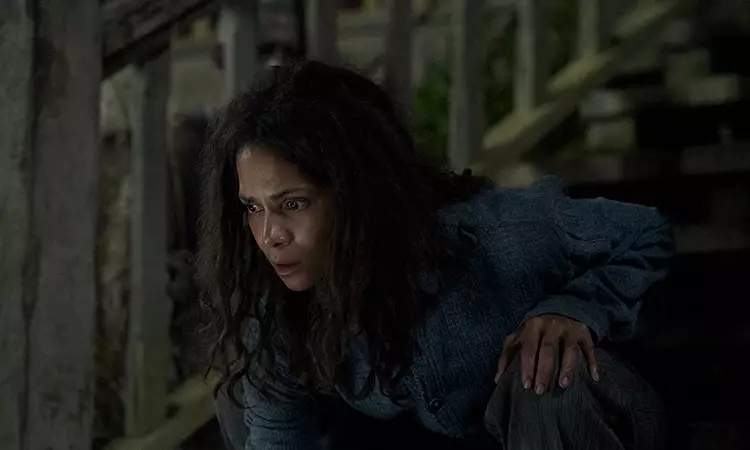The upcoming psychological horror film, “Never Let Go,” directed by the notable Alexandre Aja and produced by the minds behind “Stranger Things” and “Arrival,” offers a chilling exploration of fear and familial bonds. Starring the Oscar-winning Halle Berry, the film weaves a narrative that delves into the depths of parental protectiveness in the face of an insidious supernatural threat. The unsettling atmosphere is further amplified by a haunting trailer, where Berry’s character invokes the power of words and poetry as a means of shielding her family from the malevolent forces lurking outside their home.
At its core, “Never Let Go” revolves around the theme of the unbreakable connection between a mother and her children. As this malevolent entity lays claim to the world outside, the protagonists find solace and strength within the confines of their home and their familial ties. The act of tethering themselves together with ropes symbolizes their desperate attempt to remain united amidst chaos, emphasizing how fear can bind individuals together, for better or worse. This unique visual representation of familial bonds not only intensifies the narrative’s emotional impact but also raises pertinent questions about boundaries—both physical and mental—in times of distress.
However, the trust within this bond is soon put to the test. One of the boys’ doubts about the existence of the evil challenges their unity, leading to a catastrophic rupture in their protective circle. This critical turning point forms the crux of the conflict, igniting a fierce struggle for survival. It becomes increasingly evident that faith in one another and in their shared experiences is paramount when confronted with an external threat. The film consequently inspects how external fears can infiltrate familial intimacy, turning the home—a supposed sanctuary—into a potential battleground.
Alexandre Aja, known for his work on “The Hills Have Eyes” and “Crawl,” has long been adept at crafting narratives that incorporate tangible physical fears with psychological undertones. His direction in “Never Let Go” promises to blend visceral horror with psychological tension, ensuring audiences experience not only the dread of the unknown but also the internal struggles of its characters. Aiming to evoke a sense of claustrophobia, Aja utilizes spaces—the home and the lurking darkness outside—as metaphors for the fears that encroach on familial bonds.
With the writing credits going to KC Coughlin and Ryan Grassby, who previously contributed to “The King Tide,” the screenplay likely carries a layered complexity. This multifaceted approach guarantees that the horrors witnessed in “Never Let Go” will resonate with viewers on both primal and cerebral levels.
The combination of Halle Berry’s magnetic screen presence and Aja’s illustrious track record may propel “Never Let Go” into critical and commercial success. The film’s ability to grip audiences through the exploration of universal themes—parental fear, trust, and the specter of external threats—positions it as a poignant reminder of the fragility of familial ties when confronted with harrowing circumstances. As viewers eagerly await its release, “Never Let Go” stands poised to redefine the boundaries of horror by marrying psychological tension with profound emotional stakes.

